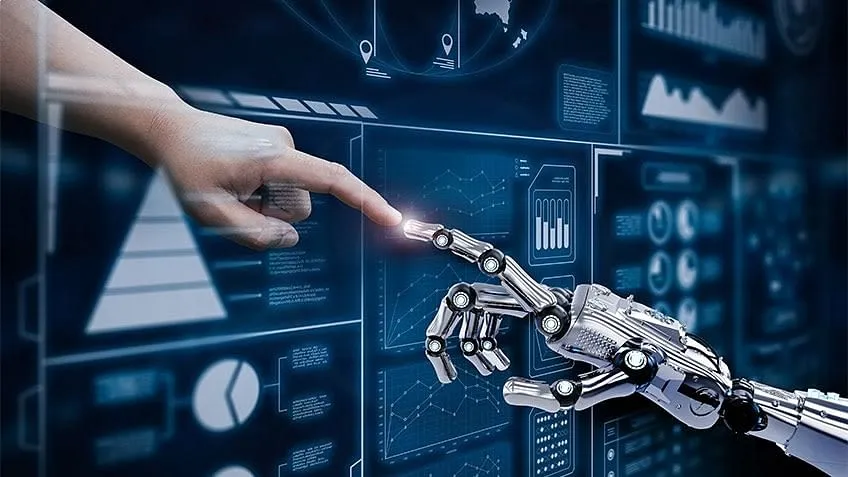
In the ever-evolving landscape of technology, Artificial Intelligence (AI) stands out as a beacon of innovation and progress. With the ability to mimic human intelligence and perform tasks that traditionally required human cognition, AI has become a driving force in shaping the future. This blog explores the fascinating world of Artificial Intelligence, delving into its history, applications, and the ethical considerations that accompany this powerful technology.
The Evolution of Artificial Intelligence
Origins and Early Developments
The roots of Artificial Intelligence can be traced back to ancient times when myths and stories depicted human-like machines crafted by skilled artisans. However, the formalization of AI as a scientific discipline began in the mid-20th century. In 1956, at the Dartmouth Conference, the term “Artificial Intelligence” was coined by computer scientist John McCarthy, marking the birth of a new era.
The early years of AI research were characterized by optimism and ambitious goals. Researchers believed that machines could be programmed to replicate any intellectual task performed by humans. However, progress was slow, and early AI systems faced numerous challenges due to limited computational power and data.
The AI Winter and Resurgence
The 1970s and 1980s saw a period known as the “AI winter,” marked by waning interest and funding in AI research. Initial expectations had not been met, and the field faced criticism and skepticism. However, a resurgence occurred in the 1990s with the advent of more powerful computers and the refinement of algorithms.
Advancements in machine learning, a subset of AI, played a pivotal role in revitalizing the field. Instead of relying on explicit programming, machine learning algorithms allowed systems to learn from data and improve over time. This paradigm shift paved the way for breakthroughs in natural language processing, computer vision, and other AI applications.
Contemporary AI: Machine Learning and Deep Learning
In recent years, machine learning and deep learning have emerged as the driving forces behind the remarkable progress in AI. Machine learning algorithms, particularly those involving neural networks, have demonstrated the ability to outperform traditional approaches in various tasks.
Deep learning, a subset of machine learning, focuses on neural networks with multiple layers (deep neural networks). These networks can automatically learn hierarchical representations of data, enabling more nuanced and sophisticated decision-making. This technology has powered advancements in image and speech recognition, language translation, and autonomous systems.
Applications of Artificial Intelligence
Transforming Industries
Artificial Intelligence has permeated various industries, revolutionizing how tasks are performed and decisions are made. In healthcare, AI is being used for medical image analysis, drug discovery, and personalized treatment plans. The financial sector benefits from AI algorithms for fraud detection, risk management, and algorithmic trading. In manufacturing, AI-driven automation optimizes production processes, reducing costs and improving efficiency.
The retail sector leverages AI for demand forecasting, personalized recommendations, and supply chain optimization. Customer service is enhanced through chatbots and virtual assistants that provide instant responses and support. The entertainment industry employs AI for content recommendation and creation, shaping user experiences based on individual preferences.
AI in Everyday Life
Artificial Intelligence has become an integral part of our daily lives, often without us realizing it. Virtual assistants like Siri and Alexa use natural language processing to understand and respond to user commands. Social media platforms employ AI algorithms to curate personalized content feeds, keeping users engaged.
Smart homes utilize AI to automate and optimize energy consumption, security, and comfort. AI-powered navigation systems in cars assist drivers in reaching their destinations efficiently and safely. As technology continues to advance, the integration of AI into various aspects of our lives is set to increase, bringing both convenience and challenges.
Ethical Considerations in AI
With the increasing prevalence of AI, ethical considerations have come to the forefront. The use of AI in decision-making processes, particularly those with societal implications, raises concerns about bias and fairness. Machine learning algorithms, when trained on biased data, can perpetuate and even exacerbate existing societal inequalities.
Issues related to privacy and data security also emerge as AI systems collect and analyze vast amounts of personal information. Striking a balance between the benefits of AI and protecting individual rights requires careful consideration and the establishment of ethical guidelines and regulations.
The Future of Artificial Intelligence
Challenges and Opportunities
As Artificial Intelligence continues to advance, several challenges and opportunities lie ahead. Ethical concerns, as mentioned earlier, demand ongoing attention and proactive solutions. The responsible development and deployment of AI systems are crucial to ensuring the technology benefits society as a whole.
Technical challenges, such as creating AI systems that can explain their decision-making processes (interpretability), robustly handle unforeseen situations, and operate with limited data, are areas of active research. Overcoming these challenges will unlock new possibilities and expand the scope of AI applications.
Collaborative Intelligence
The future of AI is not solely about machines working in isolation but rather a vision of collaborative intelligence, where humans and AI systems complement each other’s strengths. Augmented intelligence, a concept emphasizing the collaboration between humans and AI, envisions a future where AI enhances human capabilities rather than replacing them.
This collaborative approach can be observed in fields like healthcare, where AI assists medical professionals in diagnosing diseases and designing treatment plans. Human-AI collaboration in creative endeavors, scientific research, and decision-making processes is anticipated to become more prevalent, ushering in an era of shared intelligence.
The Ethical Imperative
As we stand at the cusp of an AI-driven future, there is an ethical imperative to guide its development and deployment. Ethical AI principles, transparency in algorithms, and accountability for the impact of AI systems are essential components of a responsible AI ecosystem.
Ensuring diversity and inclusivity in AI development teams is crucial to mitigating biases in algorithms. Collaborative efforts involving governments, industries, and academia are necessary to establish and enforce ethical standards that protect individuals and society at large.
Conclusion
In conclusion, Artificial Intelligence has traversed a fascinating journey from its inception to the present day, transforming industries, influencing everyday life, and presenting both challenges and opportunities for the future. The evolution of AI reflects the resilience and adaptability of the human quest for knowledge and innovation.
As we navigate this AI-powered landscape, it is imperative to approach its development with a sense of responsibility, prioritizing ethical considerations and striving for collaborative intelligence. In doing so, we can harness the full potential of Artificial Intelligence to create a future that is not only technologically advanced but also ethically sound and inclusive.










